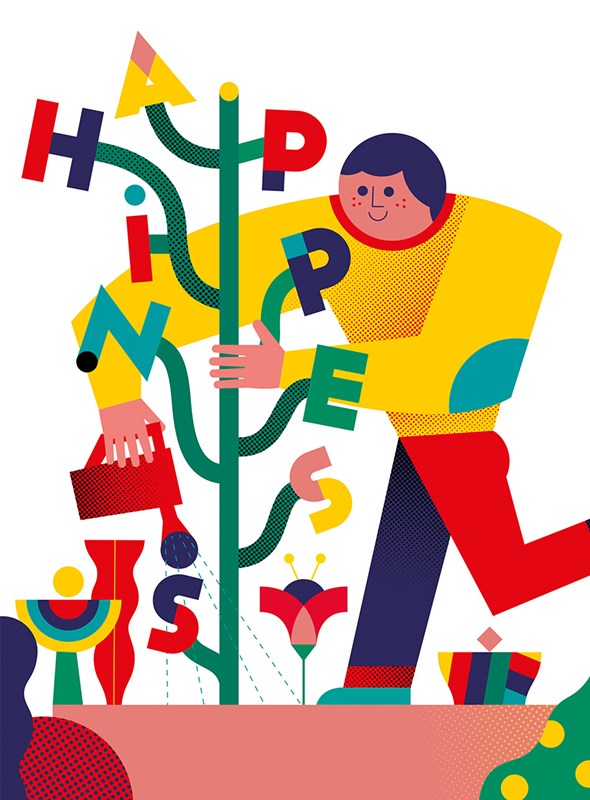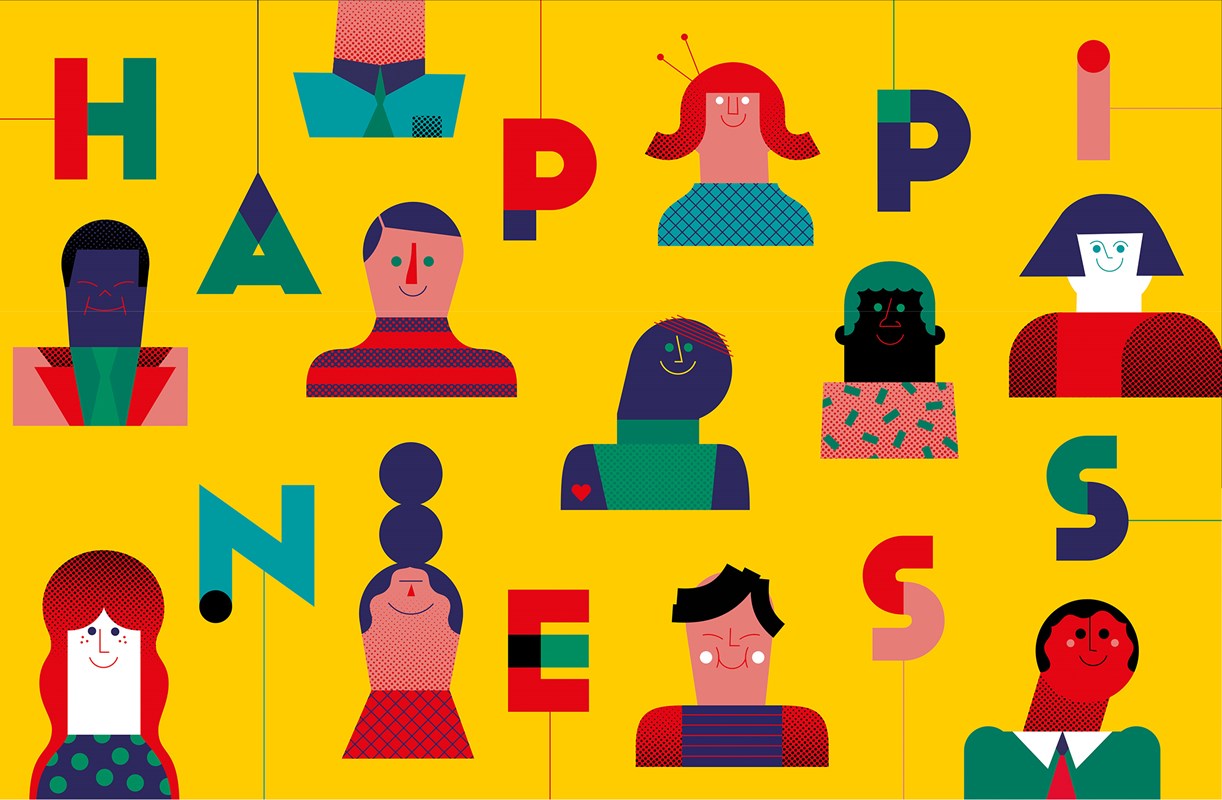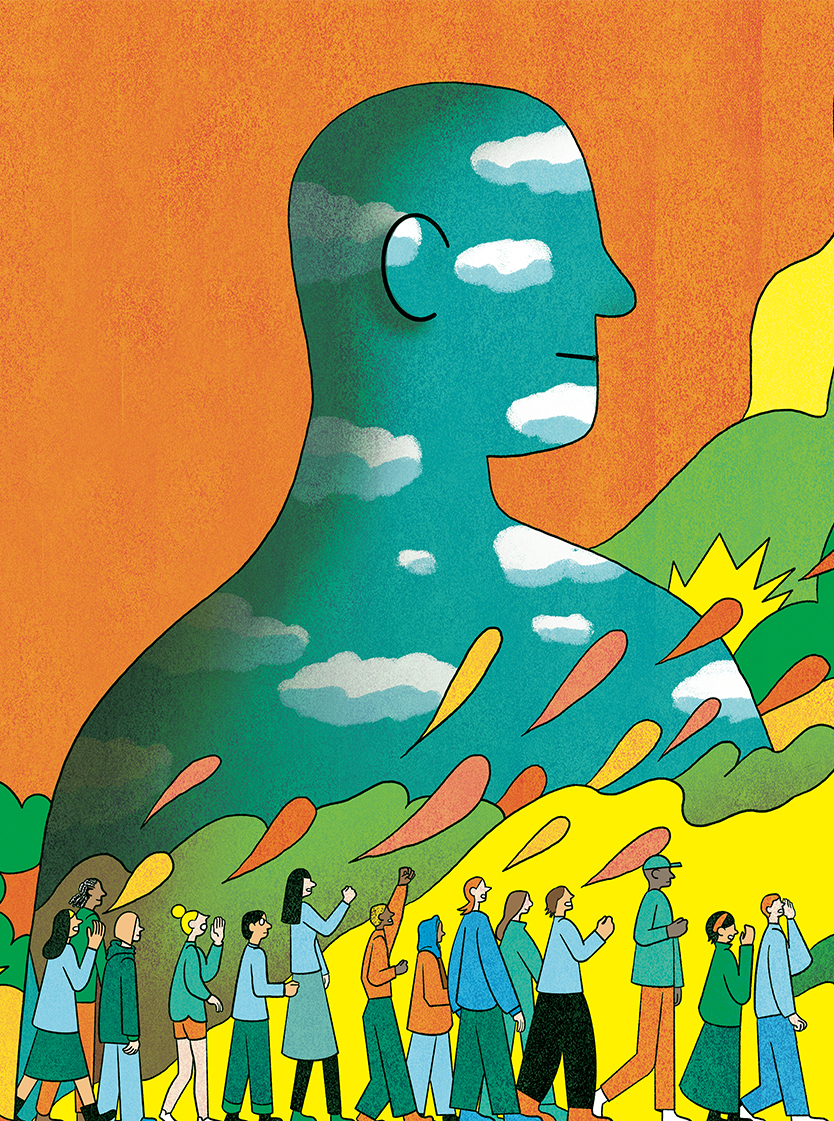The importance of happiness
By Sir Anthony Seldon

Camilla Falsini

Inspiring and forward-thinking countries around the world now understand the importance of happiness, and their responsibility to promote it, writes educator, historian and author Sir Anthony Seldon, who argues that all governments now need to wake up and recognise the necessity.
If all governments started prioritising happiness and well-being and made the development of good character the fundamental building block of their schools and universities, they would find that crime and health bills in their countries would fall, and productivity and tourism would rise. Making this transition is a no-brainer, and I am hopeful Expo 2020 Dubai will be the vital impetus that sets countries across the world off on a new direction of thinking.
The 20th century saw governments concentrate on measurable, quantifiable data, for example, economic growth, gross national product and inflation. In the school system, the focus was on exam results and league tables while, for universities, the focus was on the proportion of students gaining top degrees.
This kind of data matters a great deal. It is without doubt very important. But it is not all important and, because we allowed it to become so last century, enormous distortions occurred. What suffered was the sum total of human happiness, and the cohesion of our societies.
Financial security is vital. What parents can be happy if they do not know that their children will be fed, clothed, sheltered, and be kept safe? Money buys what we need to survive and flourish. But money has never been able to buy happiness in the past and will never be able to in the future. Money buys pleasure - a new car, a new smart phone or a bigger apartment. It buys grand food and wines, and luxury holidays. All of these give pleasure, but pleasure is always transitory, and it’s always a solitary experience. Happiness is very different.

“The simple rule is — if you want to feel good — do good”
Sir Anthony Seldon
Happiness is what happens to us when we see our children, or our parents, laugh. It is about good health, within ourselves, with others, with colleagues and with the environment. It is a far deeper and more rewarding experience than mere pleasure. And it endures for much longer.
The exciting news, which human beings learnt only at the end of the last century, is that happiness and good character can be taught to children, and that the lessons that are learnt then can become good habits for life. Take learning how to develop an appreciative attitude towards others, towards expressing thanks, or feeling grateful for the good things that one has. We know that showing appreciation makes us happier than if we have an attitude of constantly feeling that what we have is not good enough, and criticising everything and everyone we encounter in our world.
Children, indeed all of us, can learn the importance of exercise. The young can learn that taking exercise three times a week, with the heart rate rising for at least 20 minutes, makes us feel good and has a positive antidepressant impact. If this is combined with learning how to sleep well, which can be learned, how to eat nourishing food, and how to relax, it will have a far more potent impact in generating happiness, and warding off depression, than any antidepressant pills on the market. A healthy body leads to a healthy happy mind.

Happiness is about goodness. Those societies which care for others, especially the most vulnerable, and where citizens are most actively involved in volunteering, will be much happier than self-centred countries which have a ‘me first’ culture. The simple rule is — if you want to feel good — do good. If you want to feel bad and unhappy, be nasty to others.
Two habits or activities stand out beyond all others as the key sources of happiness (or indeed unhappiness where they are non-existent). First is feeling loved, acknowledged and accepted by others, grounded in strong relationships with family and friends. Loneliness is a growing problem in the 21st century, and it’s not only the elderly who feel it. Very sadly, many young people across the world feel isolated and alone, with social media often contributing, not to a sense of genuine friendship, but to being victimised and bullied by others. The best countries and societies value communities and families and encourage social and cultural activities for people to enjoy together.

Second, happiness arises among human beings when we have a meaning in life. It may be religious faith, or it may be another kind of meaning. But the evidence is very clear that where we feel our life has a real value and a sense of direction, our happiness increases. We all need to be searching for the opportunities in our lives when we can reflect on our personal meaning, and rededicating ourselves to those activities that give us a deep sense of personal worth.
Expo 2020 Dubai provides the opportunity for celebration, but also for reflection. If Expo 2020 Dubai is to leave an enduring mark on the world, as I believe it must, it will be in reminding us that nothing, but nothing, matters more than happiness.








